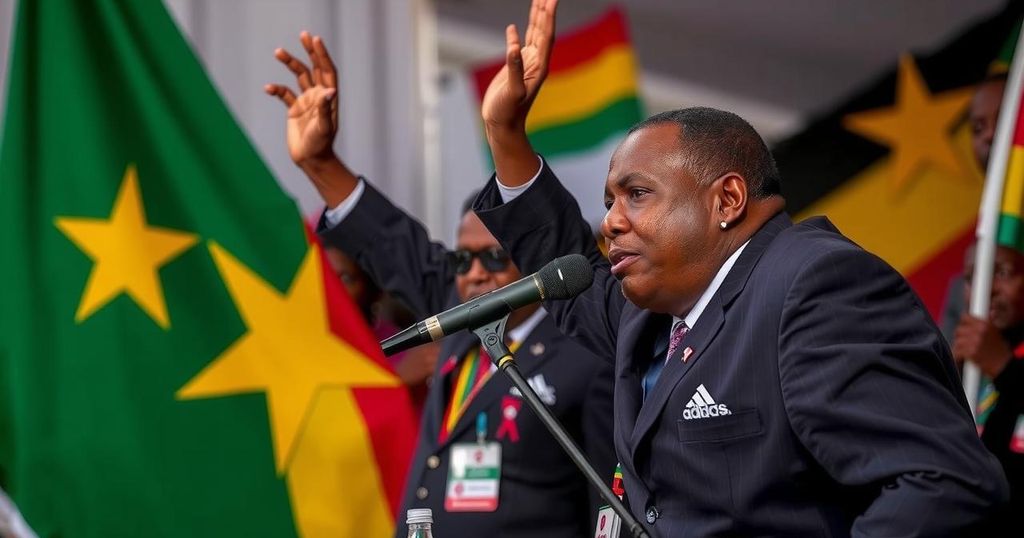Mozambique Presidential Election: Frelimo Declares Victory Amid Violence and Allegations of Fraud
Daniel Chapo of Frelimo has won the Mozambican presidential election with 70.7% of the vote amid allegations of electoral fraud and opposition violence, including the killings of Elvino Dias and Paulo Guambe. Venâncio Mondlane, who gained popularity among the youth, received 20.3%. The integrity of the electoral process has been challenged due to claims of fake voter registrations and irregularities in vote counting.
The recent presidential election in Mozambique has culminated in a significant victory for Daniel Chapo of the ruling Frelimo party, who secured 70.7% of the votes as reported by the electoral commission. This result allows him to bypass a second round of voting, with Venâncio Mondlane, his nearest rival, garnering 20.3% of the votes. Notably, the electoral process has been overshadowed by tragic incidents leading to the deaths of two opposition members, Elvino Dias and Paulo Guambe, raising concerns about election integrity amid allegations of rigged results and the registration of fake voters. Prior to the election held on October 9, civil society groups highlighted concerns regarding the credibility of the vote, accusing Frelimo of fabricating close to 900,000 imaginary voters from a total electorate of 17 million. Observers both local and international reported irregularities throughout the counting process, with accusations of ballot stuffing being levied by Mozambique’s Catholic bishops, while European Union election monitors pointed out unjustified changes to the counting of election results. Mozambique remains one of the poorest nations globally, still grappling with economic turmoil stemming from undisclosed corrupt loans amounting to $2 billion that surfaced in 2016. The fallout from this scandal caused a withdrawal of financial support from the International Monetary Fund and other funding bodies. Mondlane, who previously worked as a radio DJ and appealed to the youth demographic, recently urged for peaceful protests as a response to the election results, emphasizing the need for a democratic change in leadership. Human Rights Watch has echoed his sentiments, calling upon authorities to protect the right to peacefully assemble and investigate instances of violence during potential protests.
The context surrounding Mozambique’s recent electoral processes is deeply entrenched in decades of governance by the Frelimo party, which has maintained power for nearly fifty years. The nation faces significant economic challenges, largely exacerbated by revelations of widespread corruption linked to hidden loans. The prior electoral environment has been characterized by allegations of voter manipulation and intimidation, creating a precarious atmosphere for opposition parties and their candidates.
The electoral victory of Daniel Chapo amidst allegations of election fraud and violence represents a continuation of Frelimo’s rule in Mozambique. The recent killings of political figures and the suppressed dissent highlight significant challenges to fair representation and democratic processes within the country. As the situation develops, it is crucial for the international community and local leaders to address the underlying issues threatening the democratic fabric of Mozambique.
Original Source: www.theguardian.com




Post Comment